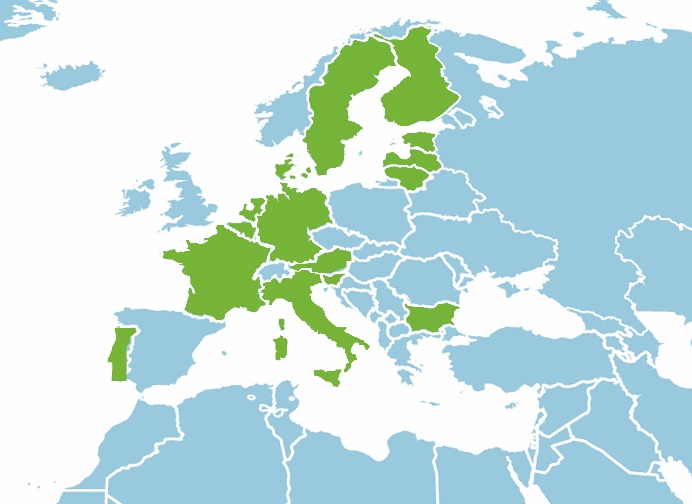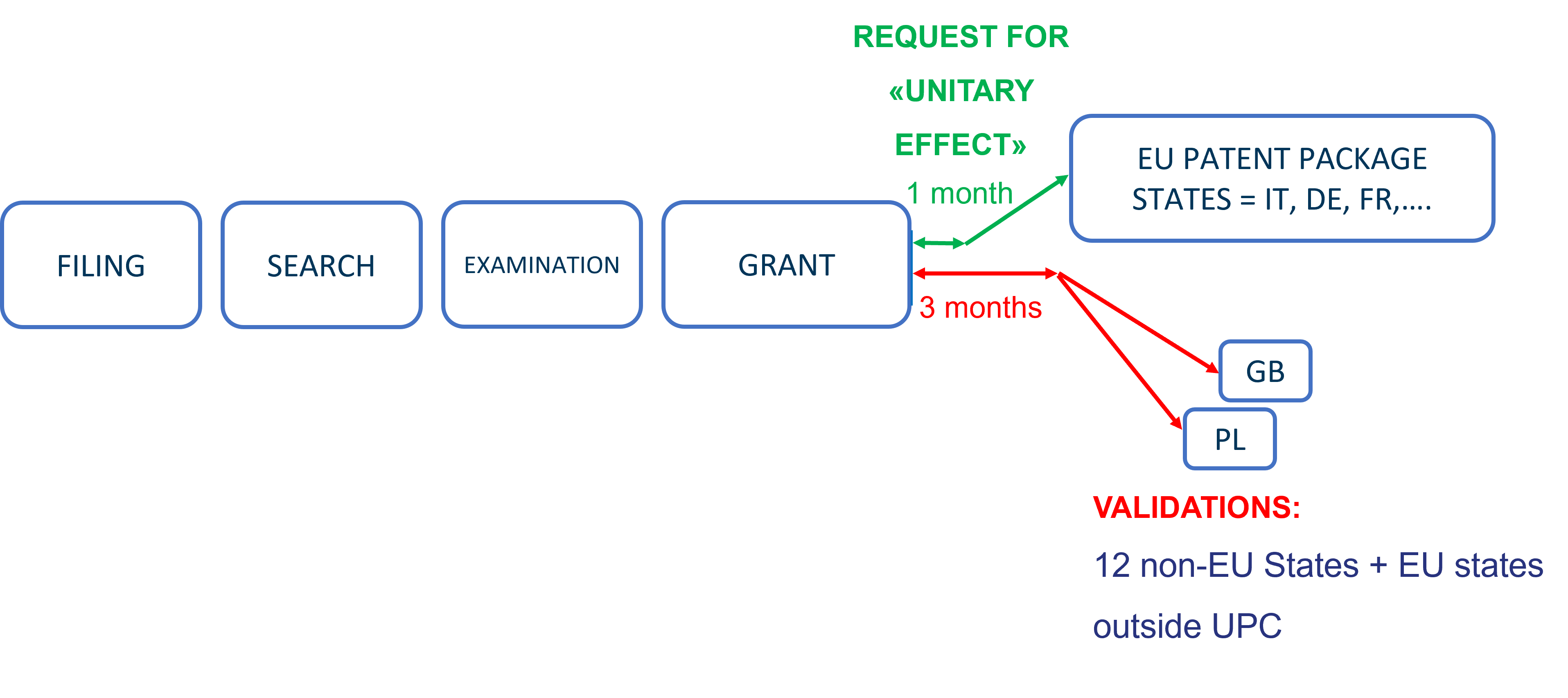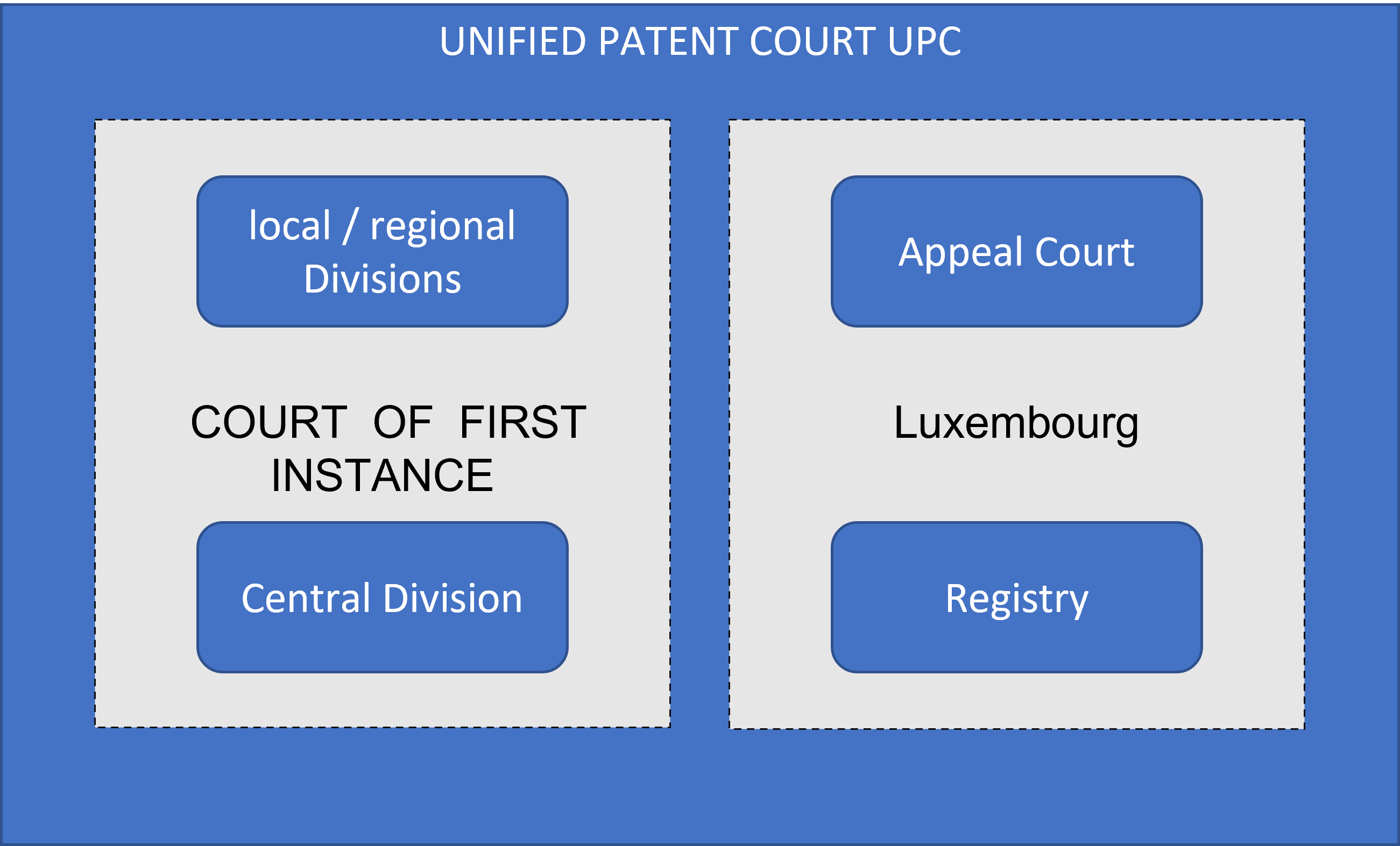A first way of protecting an invention in Europe is to directly file national patent application (NP) for each State of interest. Each national patent application undergoes a specific examination and granting procedure.
The second way is the European Patent. The European Patent Convention (EPC) which, as of October 1 2022, includes 39 Contracting States (SC), in 1977 established a unified filing and examination procedure aimed at granting the so-called European Patent. Once granted, the European Patent does not constitute a unitary patent for all the Contracting States.
At this point, i.e., upon granting the European Patent, two options are available:
- the national validations in each State of interest chosen among the 39 Contracting States , thus originating a "bundle" of national patents (EP-CS);
- the request for "Unitary Effect," which constitutes a single patent, also known as a Unitary Patent (BU), for the EU Member States participating in the EU Patent Package (SC1), possibly accompanied by national validation in each State of interest chosen among the States not participating in the EU Patent Package (SC2) because they are not EU Member States or because the EU Patent Package does not apply to their territory.
 In many EPC Contracting States, national validation requires translation of the text (or at least the set of claims) of the granted European Patent. In addition, each validation is subject to the laws and jurisdiction of the single Contracting States, as well as the related charges.
In many EPC Contracting States, national validation requires translation of the text (or at least the set of claims) of the granted European Patent. In addition, each validation is subject to the laws and jurisdiction of the single Contracting States, as well as the related charges.
For the request for “Unitary Effect” for a transitional period, only one translation of the granted European Patent needs to be filed. At the end of the transitional period, no more translations need to be filed.
For EU Member States participating in the EU Patent Package (CS1), the Unitary Patent thus offers a further option in addition to the direct national option and the national validations. For Contracting States of the EPC that are not party to the EU Patent Package (CS2) patent protection can only be obtained with the direct national option or the national validations.
The EU Patent Package is a system of laws that aims to create a Unitary Patent valid for the territory of the EU Member States party to the EU Patent Package, and a single court competent for disputes relating to Unitary Patents and national validations of European Patents. The EU Patent Package comprises the Agreement on a Unified Patent Court (Agreement 2013/C 175/01, commonly referred to as the "UPC Agreement") and two European Regulations (Regulation 1257/12 and Regulation 1260/12).
The Unitary Patent is a single patent that, when fully implemented, will provide uniform protection in the EU Member States participating in the EU Patent Package (CS1 – green-coded states), i.e. all EU Member States except Croatia, Poland, and Spain, which have not joined for the time being.
The Unitary Patent means a European Patent application filed with the European Patent Office (EPO), examined, and granted by the EPO and for which Unitary Effect has been registered following the grant.
The Unitary Patent must be enforced and can be challenged before a centralized court system generated by the EU Patent Package: The Unified Patent Court (UPC).

- It provides uniform protection in the EU Member States participating to the EU Patent Package.
- It is subject to the payment of a single annual maintenance fee.
- It may only be limited, transferred or revoked, or lapse, in respect of all EU Member States participating to the EU Patent Package.
- It is subject to the exclusive jurisdiction of the Unified Patent Court (UPC).
The single maintenance fee is comparable to the sum of the national maintenance fees payable in Germany, France, the Netherlands, and Great Britain.
After being granted by the European Patent Office, in the national validations system the European Patent must be validated in those EPC Contracting States of interest of the proprietor, so creating a 'bundle' of national patents.
The European Patent ceases to have effect for the EPC Contracting States where it has not been validated.
After being granted by the European Patent Office, a Unitary Patent can be obtained with effect in all EU Member States participating to the EU Patent Package filing a single request at the EPO.
In the other States the national validation system applies.
No. The European Union comprises 27 Member States while, when fully implemented, the Unitary Patent will be available to 24 Participating Member States, i.e., all Member States of the European Union except for (and subject to change) Spain, Croatia, and Poland (Map).


Furthermore, the EU Patent Package entered into force in 2023 with a smaller number of States corresponding to the Participating Member States that had deposited their instrument of ratification of the UPC Agreement.
Ratifications subsequent to the entry into force of the EU Patent Package apply only to subsequent Unitary Patents.
The Unitary Patent is a European Patent granted by the EPO according to the rules and procedures of the EPC, for which the proprietor files a request for unitary effect with the EPO within one month of the publication of the decision to grant.

A request for unitary effect can be filed for European Patents that have been granted with the same set of claims for all participating Member States.
A first factor affecting costs is the filing and granting procedure for the European Patent, which remains unchanged from the past, as does its cost.
Another factor is the need to file a translation when applying for the Unitary Patent, after the grant and limited to the transitional period.
Furthermore, after grant, the Unitary Patent will be subject to a single renewal fee comparable to the sum of the national renewal fees payable in Germany, France, the Netherlands, and Great Britain.
In choosing the best option after the European Patent granting procedure, factors such as geographic scope, current and future costs, the 'strength' of the patent, the importance of the related product/process and the litigiousness of the industry must be taken into consideration.
In particular, the choice of the Unitary Patent has positive and negative repercussions, including:
- The possibility to file a single request for all EU Member States participating in the EU Patent Package.
- The possibility of obtaining extended protection without the need to prepare translations (when fully operational), which is countered by the risk that, in an infringement case at the UPC, this may alleviate the damage count for some parties (SMEs, ...) who are unable to understand the language in which the patent was granted.
- The possibility, if any, of converting the Unitary Patent into national patents or utility models, the adoption of which is left to national laws.
- The possibility of single renewal, which on the one hand represents a simplification and on the other hand prevents selective abandonment during the 20-year patent term.
- The cost of such single renewal (comparable to the sum of national maintenance fees payable in Germany, France, the Netherlands, and Great Britain) which makes the Unitary Patent advantageous if the territorial interest extends to 4 or more states.
- The possibility for certain parties (SMEs, ...) to receive a lump sum compensation for translations made at the time of filing the European patent application.
- The possibility of uniform protection for all EU Member States participating in the EU Patent Package and for the entire duration of the patent.
- The lack, as of today, of a Unitary Supplementary Protection Certificate (SPC).
- The provision of a single national law governing the Unitary Patent as an object of property.
- The exclusive and non-waivable jurisdiction of the UPC over the Unitary Patent with the possibility of centralised actions against possible infringers and with the risk of centralized revocation or limitation further aggravated by the fact that the validity of the Unitary Patent could be questioned in view of so-called 'national prior rights'.
The UPC is a court common to the Contracting Member States of the Agreement establishing it, which can be ratified by any Member State of the European Union.
With some exceptions during the initial transitional period, the UPC has exclusive jurisdiction for disputes relating to the national validations of European Patents, Unitary Patents, Supplementary Protection Certificates (SPCs) and European Patent applications.
The court's decisions apply, in the case of the national validations of a European Patent, to the territory of the UPCA Contracting Member States for which the European Patent has effect.
The UPC will therefore join the national courts with limited, but exclusive jurisdiction.
The UPC has no jurisdiction over national patents.
The UPC consists of a Court of First Instance, a Court of Appeal and a Registry.
The Court of First Instance comprises a central division and local/regional divisions. The central division has its seat in Paris, a division in Munich and a division in Milan.
Each Contracting Member State may establish a local division or, together with other Contracting Member States, also depending on the number of actual or foreseeable patent litigation, a regional division of the Court of First Instance.
The Court of Appeal and the Registry shall be in Luxembourg.

- revocation
- infringement
- provisional and protective measures and injunctions
- declarations of non-infringement
- damages
UPC decisions apply to the territory of the UPCA Contracting Member States for which the European Patent has effect as a Unitary Patent or as European Patent validations.
During an initial transitional period, it is possible to exercise the possibility to "opt-out", i.e., to waive the jurisdiction of the UPC for actions for revocation and infringement relating to European Patent national validations, European Patent Applications and Supplementary Protection Certificates (leaving the jurisdiction to national courts).
It is not possible to exercise the opt-out for Unitary Patents.
The duration of the transitional period is 7 years, which can be extended for a maximum of a further 7 years.
In general, the opt-out may be exercised up to one month before the end of the transitional period, unless an action has already been brought before the UPC.
The opt-out request may be withdrawn (opt-in) unless an action before a national court has already been brought.
In deciding whether to file an opt-out request, the following factors need to be considered:
- The importance of the patented product/process
- The impact of a central revocation
- The 'strength' of the patent
- The risk of infringement spanning several states
- The cost of litigation, damages, and court costs before the UPC
- The reliability and predictability of UPC decisions, especially at an early stage
- The presence of other available forms of protection (trademarks, design, know-how)
- Factors that may make it impossible to withdraw the opt-out request (opt-in), for example in case of a case before a national court
- The consent of all proprietors
- a European Patent Attorney with appropriate qualifications, such as a European Patent Litigation Certificate, or
- an attorney qualified to practice before the court of a Contracting Member State of the UPCA.
- proceed to judge both the action for infringement and the counterclaim for revocation;
- transfer the counterclaim for revocation to the competent central division of the UPC. The local division remains competent for the action for infringement and is referred to as "bifurcation" in this case. The action for infringement may at this point either be suspended pending the central division's decision on the counterclaim for revocation or be decided independently by the local division without waiting for the outcome of the counterclaim for revocation (true bifurcation);
- transferring both the action for infringement and the counterclaim for revocation to the central division of the UPC, provided that all parties agree.
Yes. Small and micro-enterprises (definition according to European Commission Recommendation No. 2003/361) pay only 60% of the fees.
There are also reductions for cases where the parties, by mutual agreement, request that the dispute be dealt with and decided by a single judge (25%).
Refunds of the fees paid, varying from 60% to 20%, are envisaged in the event that the dispute is resolved by way of settlement, also through the Mediation and Arbitration Centre, established at the UPC, before the conclusion of the first written phase (60% reduction), the interim phase (40%) or the final oral phase (20%).